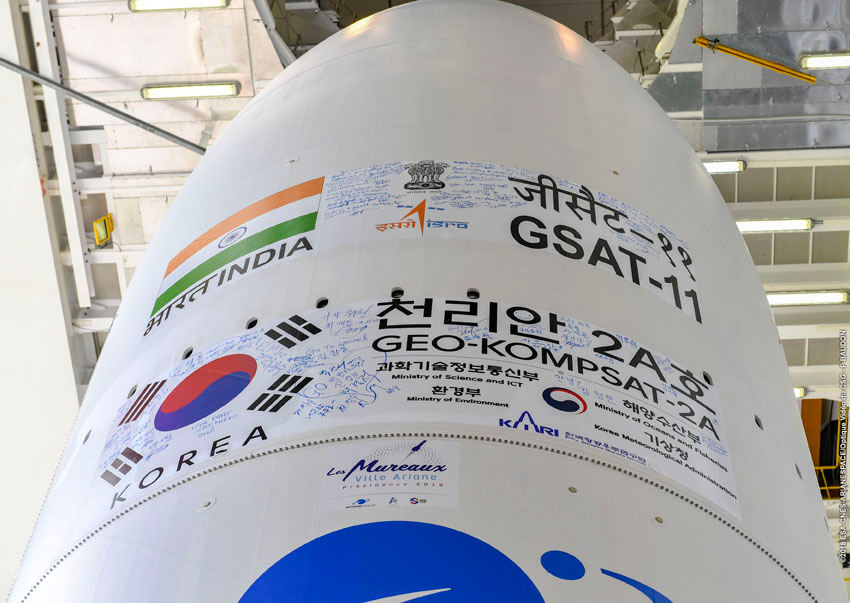Arianespace successfully launched India’s GSAT-11 and Korea's GEO-KOMPSAT-2A on 4th December.
Arianespace’s tenth mission of 2018, successfully completed on 4th December, placed satellite payloads for the Indian Space Research Organisation (ISRO) and the Korea Aerospace Research Institute (KARI) into geostationary transfer orbit, using an Ariane 5.
Designated Flight VA246, it delivered the ISRO GSAT-11 relay platform for Ku- and Ka-band communications, along with KARI’s GEO-KOMPSAT-2A – which is to provide meteorological and space weather monitoring data.
GSAT-11, the 22nd ISRO satellite orbited by Arianespace, weighed in at 5,854.6kg – the largest and heaviest satellite ever built by the Indian space agency.
Deployed first during Ariane 5’s 33-minute mission to geostationary transfer orbit, GSAT-11 will be positioned at 74 deg. East, providing communications services in Ku- and Ka-bands in both forward and return links. The satellite will provide multi-spot beam coverage over the Indian mainland and nearby islands. GSAT-11’s design lifetime is more than 15 years.
GEO-KOMPSAT-2A was carried in Ariane 5’s lower payload position and released second in the sequence. Developed by KARI at its South Korean facility in Daejeon, this 3,507.2kg satellite will deliver meteorological and space weather monitoring from an orbital position of 128.2 deg. East as part of a Korean government national programme.
Arianespace has one more mission scheduled before year-end, using the Soyuz medium-lift launcher to orbit the CSO-1 spacecraft for France’s DGA defence procurement agency and the French CNES space agency.

